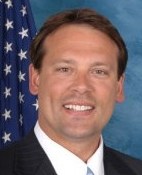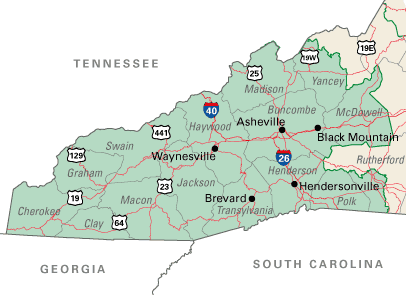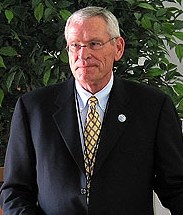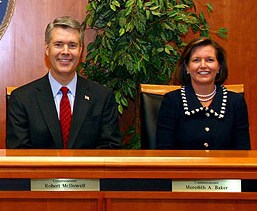
The CTIA is the wireless industry's lobbying group
While the phone and cable companies attempt to fight off broadband reclassification at the FCC, the wireless industry has been pulling its own weight in an effort to convince legislators everything is wonderful in wireless, and no consumer protection regulations are necessary.
The CTIA, the wireless lobbying group, has been blogging on overdrive lately, trying to sell the idea Americans are already soaking in broadband options and competition that keeps prices low and innovation high. Why regulate an industry that isn’t broken?
If only it were true.
While Americans in larger communities do have choices for broadband, for most it’s a matter of picking the phone or cable company for service. That’s called a duopoly. In the wireless marketplace, it’s hardly much better. The nation’s largest wireless phone companies, AT&T and Verizon, have essentially colluded with near-identical pricing and service plan requirements that demand customers add mandatory “options” like data plan add-ons that raise wireless bills higher than ever.
The smaller providers eke out an existence mildly competing over pricing, but with their inherent coverage limitations or history of providing poor customer service, many consumers won’t consider doing business with them. Relying on most wireless providers for broadband threatens the kind of huge bills you see on TV news reports, as carriers limit consumption to 5GB per month, and most charge enormous overlimit fees to customers exceeding the limit.
The Federal Communications Commission recently found one in every six Americans suffer “bill shock” syndrome — that all-too-familiar panicky feeling when you open a cell phone bill and discover an extra zero on the end of the dollar amount due. More than a third of people who experienced bill shock said their bills jumped by at least $50 — around 23 percent said the increase was $100 or more.

Settles
That amounts to more than 30 million Americans, but the CTIA’s “see no evil, hear no evil” blog carries on claiming life is good for wireless consumers. Besides, writes Steve Largent, president of the CTIA, consumers who took their complaints to the Better Business Bureau had them resolved 97.4 percent of the time.
Of course, that begs the question why consumers had to approach the BBB about their poor service experience in the first place.
I’m not the only one asking questions. Craig Settles, an industry analyst, co-administrator of Communities United for Broadband and author of the report “Fighting the Next Good Fight: Bringing True Broadband to Your Community,” is also pondering the industry campaign to block broadband reform.
Settles penned a piece in today’s Roll Call exposing the fallacies from the industry’s PR machine:
The state of broadband — for consumers, businesses and nonprofits — isn’t the rosy picture the industry powerhouses attempt to paint. Ignoring this reality can lead to bad policy decisions and bad legislation.
[…]
Most states may technically have 60 to 80 Internet access providers. However, in practically every state, the combined statewide market share of all but the top five or six providers might total 5 percent, if you’re lucky. In at least half of the states, data show the combined market share of the top two providers ranges from 70 percent up to 95 percent. That represents near or actual duopolies, most often with one wireless and one cable provider as the undynamic duo.
Life at the local level, which is where your true subscriber options exist, further challenges the industry’s claim that people have choices. If you count “having choices” as living in an area where several companies advertise broadband service, or consider dial-up speed as broadband, OK.
But go door to door in rural counties and small towns. The reality you often find is one major carrier providing fair to poor service to some and no service to the rest, plus some small local providers with 2 percent or 3 percent market share struggling to provide decent service in the face of endless efforts to smite them from the planet. If you’re in one of the few states with four or five providers that each have statewide market share of 8 percent to 15 percent, it’s likely each provider is concentrated in a portion of the state, creating a local reality that’s worse than state statistics.
Settles notes that claims of “billions invested” only invites more questions about what carriers are doing with all that money. Settles questions whether its wise to brag about spending $20 billion on infrastructure costs when municipal broadband projects in states like North Carolina, with IT staffs of fewer than 12, have built superior networks delivering 10 times the speed of its competitors.
The CTIA loves to tout the innovation wireless providers bring to customers, but in many cases they are claiming credit (and often getting a cut in the action) for someone else’s innovation, especially from the third-party apps market.
Too often the real innovations in wireless broadband have often come in spite of carriers that have sought to block, control, or “manage” someone else’s vision.
[flv]http://www.phillipdampier.com/video/Freedom CTIA Ad Spot 5-2010.flv[/flv]
Watch as the CTIA wireless lobby tries to sell Americans on wireless innovation, much of which didn’t come from wireless companies at all. (1 minute)


 Subscribe
Subscribe







